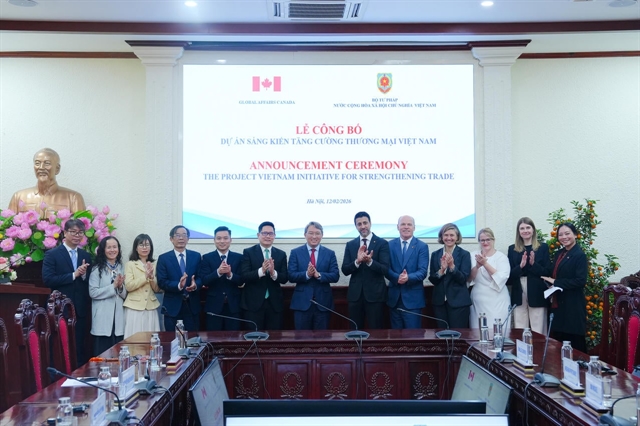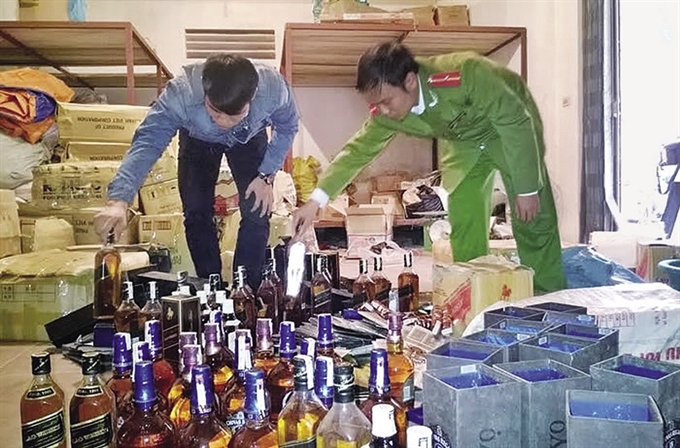 Economy
Economy

Businesses must be fully aware of the importance of intellectual property (IP) and make it a critical part of their development strategies, especially now that the country is a member of the Trans-Pacific Partnership (TPP), officials said at a discussion in Hà Nội earlier this week.
 |
| As a TPP member, Viet Nam must realise its commitment to IP rights, foreign investment, environment and labour standards, competition and State-owned enterprises, and the settlement of disputes, Deputy Minister Thanh said. —Photo laodong.vn |
Viet Nam News -HÀ NỘI – Businesses must be fully aware of the importance of intellectual property (IP) and make it a critical part of their development strategies, especially now that the country is a member of the Trans-Pacific Partnership (TPP), officials said at a discussion in Hà Nội last week.
TPP, the world’s biggest free trade agreement with its 12 member countries making up 40 per cent of the global economy, has an IP chapter that covers patents, industrial designs, trademarks, geographical indications and copyrights.
Việt Nam’s efforts to protect IP rights have yet to meet the real demand as well as international commitments, Deputy Minister of Science and Technology Trần Việt Thành said.
Thành said the country has implemented IP rights from the central to grassroots levels with programmes aimed at tackling smuggling, trade fraud and counterfeit products, and another on preventing IP infringements.
However, the violation of IP rights is still rising and has become more complicated, he emphasised.
The market control force has dealt with more than 22,400 cases relating to fake and low-quality goods and IP rights violations, said Phạm Văn Toàn, deputy chief inspector of the Science and Technology Ministry (MoST).
Of the figure, MoST inspectors have handled 752 cases and fined 344 violating organizations, while their counterparts in the Culture, Sports and Tourism Ministry have tackled 419 cases and fined 384 violators.
As a TPP member, Việt Nam must realise its commitment to IP rights, foreign investment, environment and labour standards, competition and State-owned enterprises, and the settlement of disputes, Deputy Minister Thành said.
To boost law enforcement’s effectiveness, Toàn stressed the need to align relevant legal documents - such as the Law on Intellectual Property, the Penal Code, the Law on Customs and the Law on Pharmaceuticals - with current conditions and international commitments.
While law enforcement staff should receive intensive training, inspections and the punishment of violations must be strengthened, he added.
Roland Chan, a senior director at BSA-The Software Alliance, said local companies might face risks, including cybersecurity concerns in a world that is now hyperlinked to the internet. In response to a question about how businesses should be made aware of the potential troubles they may face from using unlicenced software in TPP, Roland said the matter may be a legal question. Under the current Vietnamese law, using unlicenced software constitutes a breach of IP protection laws, including computer software.
“As an equally important concern, studies have shown that there is a close correlation between the use of unlicenced software and malware intrusions,” he said. “Ensuring the legal use of properly licenced software is a key first step an organisation can take to improve information security. As a next step, by implementing an effective Software Asset Management (SAM) solution, businesses can take full control of their software inventory and reduce risk significantly.”
The Economic Counsellor of the US Embassy in Hà Nội, John Hill, told seminar attendees that implementing transparent laws, regulations and procedures to comply with IP rights will be an imposing task for Việt Nam. He added that enforcing the standards will be even more daunting for the country as a stage of development.
And at the national level, TPP makes it possible for signatory governments to be held accountable for actions inconsistent with the agreement’s IP provisions. Under an investor-state dispute settlement mechanism, an aggrieved foreign company could take a government into international arbitration. This could put Việt Nam on the hook, Hill said.
The representative said that in the long run, better IP safeguards will attract FDI and help Việt Nam build the skills and capabilities that will carry the country over the middle-income trap.
At the discussion, many insiders called on companies to survey the market regularly to timely detect any violations of their IP rights.
The function, held by the MoST and the Việt Nam Chamber of Commerce and Industry, was among activities in response to World Intellectual Property Day (April 26). — VNS